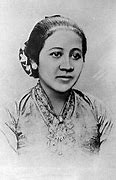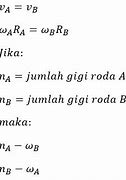
Letters Ultimately Published
Kartini's legacy is found in the many letters she wrote to friends in Holland. In 1911 a collection of her Dutch letters was published posthumously, first in Java and then in Holland as Door Duisternis tot Licht: Gedachten Over en Voor Het Javanese Volk ("From Darkness to Light: Thoughts about and on Behalf of the Javanese People"). The book was then translated into several languages, including French, Arabic, and Russian, and in 1920 was translated by Agnes Louis Symmers into English as Letters of a Javanese Princess. In 1922 Armijn Pane finally translated the book into the Javanese language under the title Habis Gelap Terbitlah Terang ("After Darkness, Light Is Born"), which he based on a verse found in both the Bible and the Qur'an in which God calls people out of the darkness and into the light. More recently, Kartini's granddaughter, Professor Haryati Soebadio, re-translated the letters and published them as Dari Gelap Menuju Cahaya, meaning "From Darkness into Light."
Kartini's letters spurred her nation's enthusiasm for nationalism and garnered sympathy abroad for the plight of Javanese women. Syrian writer Aleyech Thouk translated From Darkness into Light into Arabic for use in her country, and in her native Java Kartini's writings were used by a group trying to gain support for the country's Ethical Policy movement, which had been losing popularity. Many of Kartini's admirers established a string of "Kartini schools" across the island of Java, the schools funded through private contributions.
Kartini's beliefs and letters inspired many women and effected actual change in her native Java. Taking their example, women from other islands in the archipelago, such as Sumatra, also were inspired to push for change in their regions. The 1945 Constitution establishing the Republic of Indonesia guaranteed women the same rights as men in the areas of education, voting rights, and economy. Today, women are welcome at all levels of education and have a broad choice of careers. Kartini's contributions to Indonesian society are remembered in her hometown of Jepara at the Museum Kartini di Jepara and in Rembang, where she spent her brief married life, at the Museum Kartini di Rembang.
Biografi singkat Raden Ajeng Kartini
Mengutip Digital Library UINKHAS Jember, Raden Ajeng Kartini lahir di Jepara, Jawa Tengah, 21 April 1879 dan meninggal di Rembang, Jawa Tengah, 17 September 1904 pada umur 25 tahun. Kartini adalah seorang tokoh suku Jawa dan Pahlawan Nasional Indonesia sekaligus sebagai pelopor kebangkitan perempuan pribumi.
Raden Ajeng Kartini berasal dari kalangan priyayi atau kelas bangsawan Jawa. Ia merupakan putri dari Raden Mas Adipati Ario Sosroningrat, seorang patih yang diangkat menjadi bupati Jepara segera setelah Kartini lahir. Ibunya bernama M.A. Ngasirah, putri dari Nyai Haji Siti Aminah dan Kyai Haji Madirono, seorang guru agama di Telukawur, Jepara.
Kartini adalah anak ke-5 dari 11 bersaudara kandung dan tiri. Dari semua saudara kandungnya, Kartini adalah anak perempuan tertua. Sampai usia 12 tahun, Kartini diperbolehkan bersekolah di ELS (Europese Lagere School). Di sini antara lain Kartini belajar bahasa Belanda. Tetapi setelah usia 12 tahun, ia harus tinggal di rumah karena sudah bisa dipingit.
Karena Kartini bisa berbahasa Belanda, maka di rumah ia mulai belajar sendiri dan menulis surat kepada teman-teman korespondensi yang berasal dari Belanda. Salah satunya adalah Rosa Abendanon yang banyak mendukungnya. Dari buku-buku, koran, dan majalah Eropa, Kartini tertarik pada kemajuan berpikir perempuan Eropa.
Timbul keinginannya untuk memajukan perempuan pribumi, karena ia melihat bahwa perempuan pribumi berada pada status sosial yang rendah. Kartini banyak membaca surat kabar Semarang De Locomotief yang diasuh Pieter Brooshooft, ia juga menerima leestrommel (paket majalah yang diedarkan toko buku kepada langganan).
Di antaranya terdapat majalah kebudayaan dan ilmu pengetahuan yang cukup berat, juga ada majalah perempuan Belanda De Hollandsche Lelie. Kartini pun kemudian beberapa kali mengirimkan tulisannya dan dimuat di De Hollandsche Lelie. Dari surat-suratnya tampak Kartini membaca apa saja dengan penuh perhatian, sambil membuat catatan-catatan.
Perhatiannya tidak hanya semata-mata soal emansipasi perempuan, tapi juga masalah sosial umum. Kartini melihat perjuangan perempuan agar memperoleh kebebasan, otonomi dan persamaan hukum sebagai bagian dari gerakan yang lebih luas. Kemudian Kartini disuruh menikah dengan bupati Rembang, K.R.M. Adipati Ario Singgih Djojo Adhiningrat, yang sudah pernah memiliki tiga istri. Kartini menikah pada tanggal 12 November 1903.
Suaminya mengerti keinginan Kartini dan Kartini diberi kebebasan dan didukung mendirikan sekolah perempuan di sebelah timur pintu gerbang kompleks kantor kabupaten Rembang, atau di sebuah bangunan yang kini digunakan sebagai Gedung Pramuka. Jasa-jasa Kartini di bidang pendidikan pun dikenang dan dihormati sampai sekarang.
Baca Juga: 15 Contoh Puisi Kartini Penuh Makna, Bisa Memotivasi!
RADEN AJENG KARTINI PELOPOR EMANSIPASI WANITA
Raden Ajeng Kartini atau yang lebih dikenal sebagai RA Kartini adalah seorang pahlawan nasional Indonesia yang dikenal sebagai pelopor emansipasi wanita. Lahir pada tanggal 21 April 1879 di Jepara, Jawa Tengah, RA Kartini merupakan putri dari keluarga bangsawan Jawa yang cukup terkenal. Sebagai seorang wanita yang lahir pada masa penjajahan Belanda di Indonesia, RA Kartini mengalami keterbatasan dalam memperoleh pendidikan dan kesempatan untuk berkembang. Namun, RA Kartini tidak menyerah dan tetap berjuang untuk mendapatkan pendidikan serta memperjuangkan hak-hak wanita.
Sejak kecil, RA Kartini telah menunjukkan minat yang besar dalam bidang pendidikan. Ia belajar bahasa Belanda dari seorang guru swasta dan membaca banyak buku, termasuk buku-buku yang ditulis oleh para feminis Belanda. Dari situlah, Kartini mulai memiliki pandangan yang lebih luas tentang peran wanita dan hak-haknya. Pada usia 12 tahun, RA Kartini dijodohkan oleh keluarganya untuk dinikahkan dengan seorang bangsawan Jawa yang lebih tua darinya. Namun, RA Kartini menolak perjodohan tersebut dan meminta izin untuk melanjutkan pendidikannya di sekolah Belanda. Meskipun awalnya ia ditentang oleh keluarganya, akhirnya Kartini berhasil meyakinkan ayahnya untuk memberinya izin.
Setelah menyelesaikan pendidikan di sekolah Belanda, RA Kartini bekerja sebagai guru di sekolah pribumi. Di sana, ia berjuang untuk memperjuangkan hak-hak pendidikan bagi wanita Indonesia. Ia juga membuka sekolah untuk perempuan, yang dikenal sebagai Sekolah Kartini, di mana ia mengajarkan bahasa Belanda, seni dan kerajinan, serta keterampilan lainnya.Tulisan-tulisannya yang dipublikasikan di surat kabar dan buku-buku yang ia tulis memperjuangkan hak-hak wanita dan kesetaraan gender. Buku "Habis Gelap Terbitlah Terang" merupakan salah satu karya Kartini yang terkenal, di mana ia menuliskan pemikirannya tentang pendidikan dan emansipasi wanita.
RA Kartini meninggal dunia pada usia yang sangat muda, yaitu 25 tahun, akibat komplikasi persalinan. Namun, perjuangannya untuk memperjuangkan hak-hak wanita dan kesetaraan gender telah memberikan pengaruh yang besar bagi Indonesia dan dunia internasional. Pada tanggal 21 April, Indonesia merayakan hari Kartini, sebagai penghormatan dan apresiasi atas perjuangan RA Kartini. Hari Kartini juga dijadikan sebagai momen refleksi dan inspirasi bagi semua orang, khususnya bagi wanita Indonesia, untuk mengembangkan potensi diri dan memperjuangkan hak-hak yang sama dengan laki-laki.
Ada beberapa pelajaran penting yang dapat dipetik dari perjuangan dan karya RA Kartini, di antaranya:
Dalam rangka menghormati jasa-jasa RA Kartini, setiap tanggal 21 April di Indonesia diperingati sebagai Hari Kartini. Peringatan ini menjadi momentum untuk mengenang dan mempelajari kembali perjuangan serta karya RA Kartini, serta memperkuat semangat untuk terus memperjuangkan kesetaraan gender dan kebebasan individu.
Sumber Gambar Dari Google.Penulis: Lusia Rahajeng
PWMJATENG.COM, Surakarta – Arimby Dwinda Putri, mahasiswa Psikologi Universitas Muhammadiyah Surakarta (UMS), berhasil dinobatkan sebagai Ajeng Kartini Jawa Timur 2024. Gelar prestisius…
Educated at Dutch Schools
As a child, Kartini was very active, playing and climbing trees. She earned the nickname "little bird" because of her constant flitting around. A man of some modern attitudes, her father allowed her to attend Dutch elementary school along with her brothers. The Dutch had colonized Java and established schools open only to Europeans and to sons of wealthy Javanese. Due to the advantages of her birth and her intellectual inclination, Kartini became one of the first native women allowed to learn to read and write in Dutch.
Despite her father's permission to allow her a primary education, by Islamic custom and a Javanese tradition known as pingit, all girls, including Kartini, were forced to leave school at age 12 and stay home to learn homemaking skills. At this point, Kartini would have to wait for a man to ask for her hand in marriage. Even her status among the upper class could not save her from this tradition of discrimination against women; marriage was expected of her. For Kartini, the only escape from this traditional mode of life was to become an independent woman.
Akhir Hayat Raden Ajeng Kartini
Lanjutkan membaca artikel di bawah
Mengutip e-book Sisi Lain Kartini oleh Prof. Dr. Djoko Marihandono, dkk, tiga hari setelah pernikahannya, Kartini pindah ke Rembang untuk memulai hidup baru sebagai seorang ibu. Ia harus membagi waktu untuk suami dan anak-anaknya. Keluarga Bupati Rembang akan berkumpul kembali pada jam empat, dengan aktivitas yang berbeda.
Aktivitas keseharian Kartini mulai terhambat setelah mengandung anak pertamanya. Kondisi fisiknya mulai menurun sehingga beberapa kali menderita sakit. Tanggal 13 September 1903, Kartini melahirkan seorang anak laki-laki dengan selamat. Setelah melahirkan kondisi Kartini tampak sehat dan berseri-seri, karena itu dokter yang membantu persalinan kembali ke kotanya.
Tanpa sebab yang jelas kondisi tubuh Kartini melemah. Dokter tidak bisa mengembalikan kesehatan tubuhnya. Pada 17 September 1903, akhirnya Kartini wafat dalam usia yang masih sangat muda 25 tahun. Kematian R.A. Kartini pun sangat mengguncang pikiran suaminya.
Opened School for Girls
Rather than remaining submissive and compliant, like a good Javanese daughter, the unconventional Kartini often had disagreements with her father, and it is believed that her family was, consequently, eager to marry her off. On November 8, 1903, she obeyed her father and married Raden Adipati Joyoadiningrat, the regent of Rembang. Joyoadiningrat was a wealthy man of age 50 who already had three wives and a dozen children. Kartini—who was, at 24 years of age, considered too old to marry well—found herself a victim of polygamy. She was devastated by the marriage, which ended her dream of studying abroad just as she was awarded a scholarship to study in Europe.
Despite the marriage, in 1903 Kartini was able to take a first step toward achieving women's equality by opening a school for girls. With aid from the Dutch government Kartini established the first primary school in Indonesia especially for native girls regardless of their social standing. The small school, which was located inside her father's house, taught children and young women to read and make handicrafts, dispensed Western-style education, and provided moral instruction. At this time, Kartini also published the paper "Teach the Javanese."
Kartini's enthusiasm at educating Indonesian girls was short lived. On September 17, 1904, at the age of 25, she died while giving birth to her son. Kartini is buried near a mosque in Mantingan, south of Rembang.
FOCUS June 2009 Volume 56
Wrote Letters to Holland
From 1900 to 1904 Kartini stayed home from school in according to the dictates of Javanese tradition; she found an outlet for her beliefs in letters she wrote in Dutch and sent to her friends in Holland. Kartini was unique in that she was a woman who was able to write; what set her apart even further was her rebellious spirit and her determination to air concerns that no one, not even men, were publicly discussing.
Kartini wrote to her European friends about many subjects, including the plight of the Javanese citizenry and the need to improve their lot through education and progress. She recounts how Javanese intellectuals were put in their place if they dared to speak Dutch or to protest. She also describes the restrictive world she lived in, rife with hierarchy and isolationism. In 1902 Kartini wrote to one letter, to Mrs. Ovink-Soer, that she hoped to continue her education in Holland so that she could prepare for a future in which she could make such education accessible to all women.
Kartini is most known for writing letters in which she advocates the need to address women's rights and status, and to loosen the oppressive Islamic traditions that allowed discrimination against women. She protests against education restricted to males of the nobility, believing that all Javanese, male and female, rich and poor, have the right to be educated in order to choose their own destiny. Women especially are not allowed to realize their calling. As Nursyahbani Katjasungkana commented in the Jakarta Post, "Kartini knew and expounded the concept that women can make choices in any aspect of their lives, careers, and personal matters."
Raden Ajeng Kartini: Indonesia's Feminist Educator
Raden Ajeng Kartini is hailed as Indonesia's first feminist. April 21, the day of her birth, is celebrated as "Hari Ibu Kartini" (Kartini Day). She is seen as the symbol of Indonesian women's emancipation.[1]
Kartini was born on 21 April 1879, in a village called Mayong in the town of Jepara, North Central Java to an aristocrat family. She is the daughter of Raden Mas Adipati Aryo Sosroningrat, the Regent of Jepara. She went to a primary school, along with her brothers, for the children of Dutch planters and administrators. Other girls from aristocratic families did not receive the same formal education she obtained.[2] But under the old Javanese tradition of pingit, she was kept in seclusion at home until marriage upon reaching the age of twelve years.
Seclusion from twelve years of age until marriage did not stop Kartini from aspiring for further education. During her period of seclusion she wrote letters to many friends abroad, read magazines and books, and rebelled against the strong tradition of gender discrimination.[3] Her father gave her books on Javanese culture to "balance her western education and subscribed to a Literary Box, a box of magazines, children's books, modern novels and foreign news, which was changed every week by a local library."[4] In 1892, when she was twelve years old, Kartini made friends with the wife of the new Dutch officer appointed as Assistant Resident of Jepara, Mevrouw Ovink-Soer. Mevrouw was "highly cultured, had published a number of magazine articles," and later wrote a book entitled Women's Life in a (Javanese) Village. She was also a fervent socialist and fervent feminist.[5] One account says that the Dutch people who supported her desire to be educated and to search for new kind of education for herself were proponents of the then new colonial policy called "Ethical Policy" that emphasized[6]
Her father, a Javanese official serving the Dutch colonial government as a local administrative head on the north coast of Java, introduced her and her sisters to the reality of life for the people whom he governed, to the world beyond the then Dutch East Indies, besides exploring the intricacies of their own rich cultural heritage. He took his daughters to meet the villagers during times of crisis and celebration.[7]
She obtained a scholarship to study in Holland, a desire she worked to achieve for quite some time, but family pressure led her to ultimately reject it. She did not want marry but she consented to be the fourth wife of the Regent of Rembang, Raden Adipati Joyodiningrat, a man twenty-five years her senior. She died on 17 September 1904 after giving birth to a child a year after her marriage. She passed away at the young age of twenty-five. Prior to her death, Kartini founded a school for young girls.
In 1903, Kartini obtained permission to open in her own home in Rembang the first ever all-girls school, for daughters of Javanese officials. She created her own syllabus and system of instruction. The school aimed at the "character development of young women, while at the same time providing them with practical vocational training and general education in art, literature and science."[8] It was also a school that was both Western and Indonesian. By 1904, the school had one hundred twenty students.[9]
Kartini realized that the education she obtained that widened her choices in life should also be enjoyed as a right by all of her people. Influenced by Dutch feminists, Kartini wrote passionately for the improvement of education, public health, economic welfare, and traditional arts in her country.
She wrote in January 1903 a memorandum about education entitled Give The Javanese Education! addressed to an official of the Dutch Ministry of Justice.[10] She emphasized the need to educate the women for the development of society. She wrote:
xxx xxx xxx
She further wrote about the need for the formal education of the girls of the noble class:
She pointed out that given the resources and the Javanese population of twenty-seven million, educational policy should first be directed to elite women who could then open schools for the rest of the "masses." [11] She wrote:
She also explained that the purpose of formal education is not merely to learn the Dutch language. She argued
She criticized the Javanese culture's hierarchical nature, where younger siblings had to serve older ones and where norms dictated elaborate rituals of hierarchy. [12]
She also criticized the nobility by writing thus:
Kartini wrote many letters that were later published in Holland in 1911 in a book entitled Through Darkness into Light, and became a bestseller. It had four editions until 1923.[13]
She also wrote about her own Javanese society and the suffering of the rural poor, and the practice of polygamy.
Overall, she wanted to alter the relations between Indonesians and the Dutch a decade before the flowering of the nationalist movement. Thus, the desire to modernize her country and access the language of knowledge could be interpreted as a "nationalist" move.[14]
In her preface in the 1960s book Letters of a Javanese Princess, a collection of Kartini's letters, Eleanor Roosevelt wrote:
In present-day Indonesia, Hari Ibu Kartini or Kartini Day is seen as an "important event in the school calendar, often providing the setting in which students can explore Indonesian history, the roles of women in society, families and the rich cultural diversity of Indonesia....[and p]erhaps most importantly, it is for educators seeking to nurture the independence and self esteem of children in their care.[15]
Kartini lived a short life of twenty-five years and yet she left a legacy that supported the rights of Indonesian women in particular, and national identity in general. In the context of the remaining many challenges facing Indonesian women today, Kartini provides an inspiration to the continuing effort to overcome them.
1.Susan J. Natih,"Kartini, her life and letters,"The Jakarta Post, 21 April 2005.
2.Kumari Jayawardena, Feminism and Nationalism in the Third World (London and New Jersey: Zed Books Limited, 1994), page 141.
3.Bebeth, "Raden Ajeng Kartini, Are We Really Free?," Just About Anything, 21 April 2005,
http://bebeth009.blogspot.com/2005/04/raden-ajeng-kartini-are-we-really-free.html
5.Hilda Geertz, editor, Letters of a Javanese Princess ? Rada Adjeng Kartini (New York: W.W. Norton and Company, 1964), page 8.
8.Geertz, op cit., page 23.
9.Jayawardena, op. cit., page 145.
10.In Letters from Kartini: An Indonesian Feminist 1900-1904, translated by Joost Cote (Clayton, Victoria: Monash Asia Institute, 1992).
11."Southeast Asian Politics, Non- fiction, Javanese Education," Women in World History, available in www.chnm.gmu.edu/wwh/p/114html
12.Southeast Asian Politics, Non-fiction, Javanese Education, ibid.
13.Geertz, op cit., page 23.
14."Southeast Asian Politics, Non-fiction, Javanese Education," op. cit.
Promoted Nationalist Movement
Fearful of losing control over their island territory, the Dutch colonialists believed that knowledge of European languages and education could a be dangerous tool in the hands of the native Javanese. Consequently, they suppressed the activities of the native people, keeping them as peasants and plantation laborers, while at the same time counting on the Javanese nobility to support them in their rule over the region. Only a few of the nobility, Kartini's father included, were taught the Dutch language. Kartini believed that once the Europeans introduced Western culture to the island, they had no right to limit the desire of native Javanese to learn more. Clearly, by the late nineteenth century there was talk of independence. With her letters and her egalitarian fervor, Kartini can be said to have started the modern Indonesian nationalist movement.
Kartini was not proud of being set apart from her countrymen as one of the privileged few of the aristocracy. In her writings she described two types of nobility, one of mind and one of deed. Simply being born from a noble line does not make one great; a person needs to do great deeds for humanity to be considered noble.























